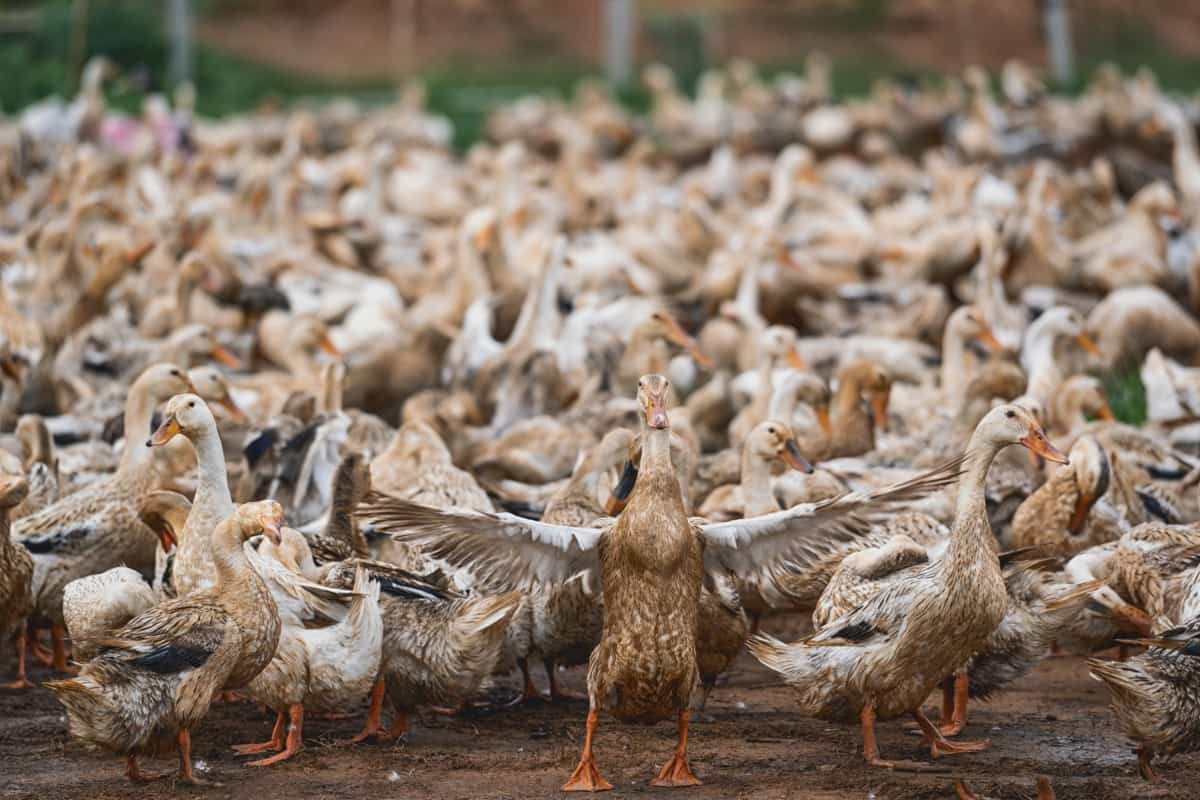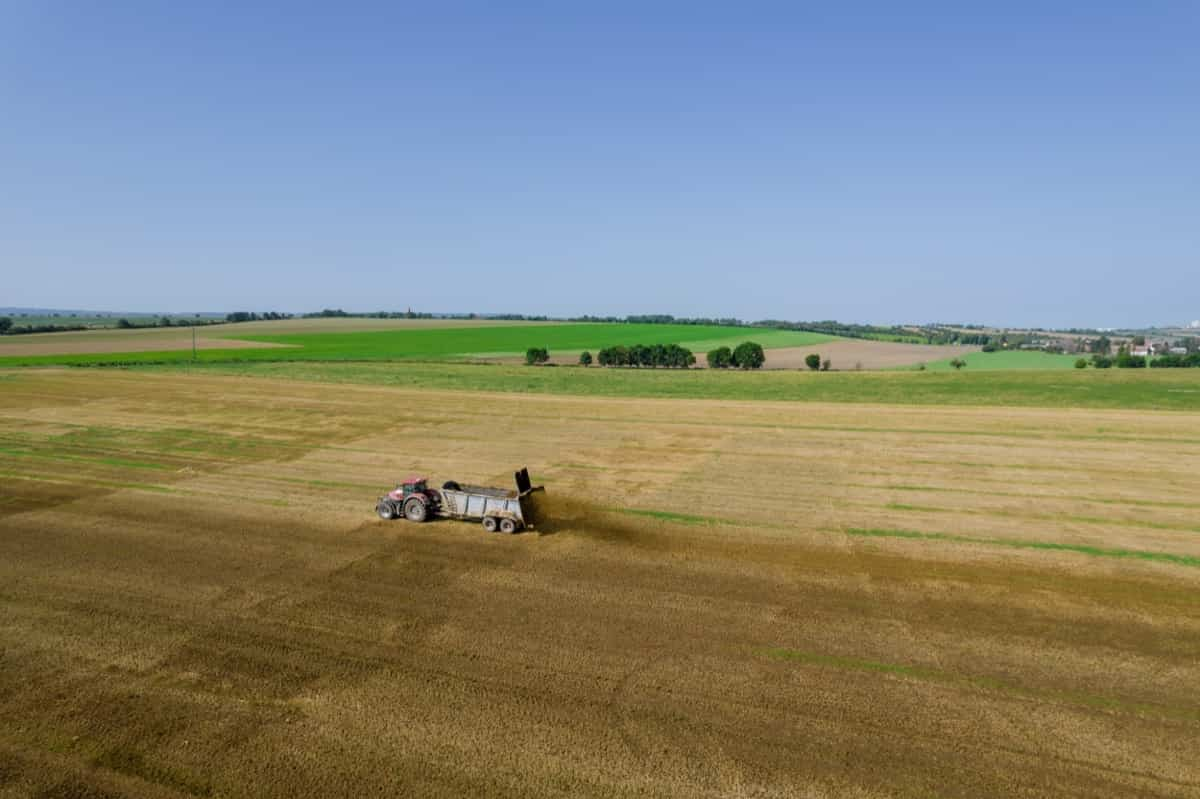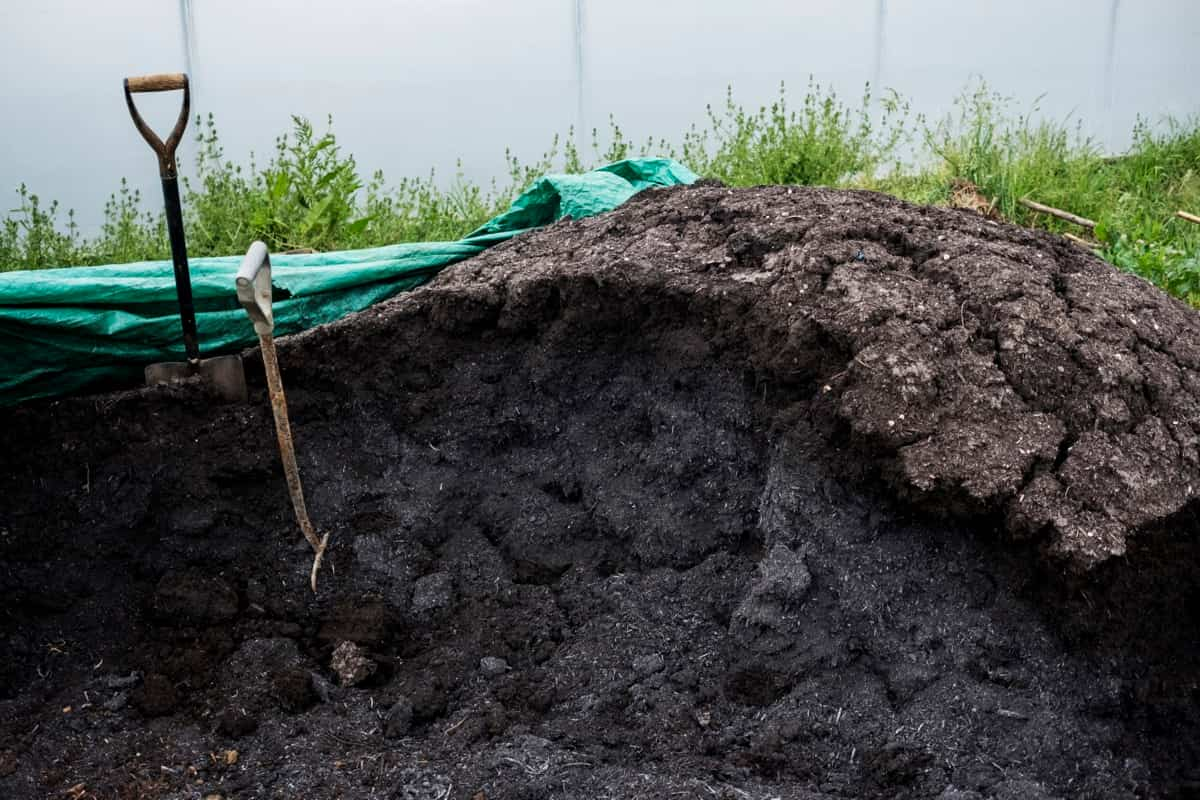Duck manure, often underappreciated, holds immense potential to transform the agricultural landscape. It is a cost-effective solution for the modern farmer, boasting an array of benefits that span from enhancing soil fertility to stimulating microbial activity. The richness of duck manure in nutrients makes it an ideal organic fertilizer. But is duck manure good fertilizer for grass? The nutrients it carries are beneficial not just for crops but also for home lawns and grasslands.

How to collect duck manure is a question often raised by interested cultivators. The process involves simple procedures of regularly cleaning the areas where ducks reside and storing the manure in compost bins or directly applying it to the soil. However, one must note that raw manure may have high nitrogen content, which might be harsh on some plants. Composting it before use can help to balance this factor. Now, let’s dive into the detailed benefits of duck manure in agriculture.
13 Benefits of Duck Manure Fertilizer in Agriculture
Enhanced Soil Fertility
Duck manure holds the power to boost soil fertility significantly. It’s teeming with essential nutrients like nitrogen, phosphorus, and potassium, all vital in enriching the soil. What’s more, the pH of duck manure falls in the neutral to slightly alkaline range, making it suitable for various plants that flourish in such pH levels. In addition to these macronutrients, duck manure contains traces of micronutrients, such as calcium, magnesium, and sulfur, which contribute to soil fertility.
Increased Crop Yields
The nutrients in duck manure are not only beneficial for the soil but also for the plants. They nourish the plants, resulting in increased crop yields. Duck manure is a complete plant food source, providing all the necessary nutrients for their growth. The increased supply of these nutrients leads to robust plant growth and higher productivity. Moreover, the slow release of nutrients ensures that the plants receive a continuous supply of nourishment over a longer period.
Organic Farming Practices
In the realm of organic farming practices, the benefits of duck manure cannot be overlooked. As an organic fertilizer, it aids in the natural growth of crops without resorting to chemical fertilizers. Its use promotes sustainable agriculture by minimizing the environmental impact associated with synthetic fertilizers. This organic approach, powered by duck manure, is good for the health of the crops and the environment and consumers who end up consuming these crops.
Nutrient-rich Composition
What are the nutrients in duck manure that make it so potent? Duck manure is a powerhouse of essential nutrients like nitrogen, phosphorus, and potassium, often called the ‘holy trinity’ of plant nutrients. Nitrogen promotes green, leafy growth, phosphorus aids in the development of roots, flowers, seeds, and fruits, while potassium contributes to the overall hardiness of the plant, helping resist diseases. This nutrient-rich composition of duck manure makes it an excellent organic fertilizer.
Improved Soil Structure
Another profound advantage of duck manure in agriculture is the improved soil structure. It aids in forming soil aggregates, increasing the soil’s ability to hold and store moisture. Also, the organic matter present in duck manure enhances the soil’s capacity to resist erosion and retain nutrients. This results in a healthier, more aerated soil, ideal for plant roots to grow and thrive.
Slow-release of Nutrients
Unlike synthetic fertilizers that release their nutrients quickly, causing potential harm to plants, duck manure ensures a slow and steady release of nutrients. This prevents the risk of nutrient burn due to an overabundance of nutrients in a short period. Furthermore, the slow-release mechanism ensures a steady supply of nutrients to the plants over a long period, thus contributing to sustained growth.
In case you missed it: Muscovy Duck Facts: Eggs Laying, Care Guide, and More

Reduced Reliance on Synthetic Fertilizers
A key advantage of duck manure is the reduced reliance on synthetic fertilizers. With its nutrient-rich composition, duck manure provides all the necessary nutrients plants need, eliminating synthetic fertilizers. This cuts down on farming costs and reduces the environmental pollution caused by these chemical fertilizers.
Cost-effective Solution
From a financial perspective, utilizing duck manure as a fertilizer is cost-effective. Collecting duck manure requires little to no expense, especially if you’re raising ducks yourself. Moreover, the savings made from reducing or eliminating the use of synthetic fertilizers add up over time. Thus, adopting duck manure as an organic fertilizer is a smart choice for the budget-conscious farmer.
Microbial Activity Stimulation
Finally, the addition of duck manure stimulates microbial activity in the soil. The organic matter in the manure acts as a food source for soil microbes. Microorganisms facilitate the decomposition of organic matter, thereby liberating nutrients in a readily absorbable form for plants. This increase in microbial activity leads to healthier soil, promoting healthier plant growth.
Promotes Sustainable Agriculture
Duck manure, by virtue of being an organic fertilizer, promotes sustainable agriculture. It is free from harmful chemicals in synthetic fertilizers, and its use leads to a safer and healthier environment. It enhances the health of the soil and crops and contributes to biodiversity by providing a hospitable environment for various organisms. Additionally, sustainable farming practices using organic fertilizers like duck manure reduce greenhouse gas emissions, thus significantly combating climate change.
Ensures Healthier Plants and Crops
Lastly, the use of duck manure ensures healthier plants and crops. The myriad nutrients in duck manure provide a balanced diet for the plants, making them more robust and resilient. These nutrients also help develop a strong root system, enhancing plants’ ability to resist diseases and pests. Healthier plants mean higher quality crops, which are better for consumption. Crops grown with organic fertilizers like duck manure are known to have a better taste and a higher nutritional profile than those grown using synthetic fertilizers.
Strengthens Disease Resistance in Crops
Duck manure, with its rich nutritional composition, strengthens disease resistance in crops. Providing a balanced blend of essential nutrients enhances the plants’ overall health and vitality, making them more resilient to diseases and pests. Duck manure’s minerals and trace elements strengthen plant cell walls, making it difficult for diseases to penetrate.
Additionally, due to the addition of duck manure, the stimulated microbial activity in the soil creates a beneficial soil ecosystem that can suppress disease-causing pathogens. Thus, using duck manure in agriculture can significantly reduce the reliance on chemical pesticides, further aligning farming practices with sustainability and environmental friendliness.
In case you missed it: Feed Management in Ducks: Feeding Plan, Feed Formula, and Feed Requirement

Conclusion
To sum up, duck manure is an excellent organic fertilizer that offers multiple benefits for the soil and plants. From enhancing soil fertility and improving crop yields to promoting organic farming practices and reducing synthetic fertilizers, the benefits of duck manure in agriculture are aplenty. Its nutrient-rich composition, cost-effectiveness, and role in stimulating microbial activity make it an ideal choice for sustainable farming practices.
- Feed Your Flock for Less: Top 10 Tips to Save on Chicken Feed
- Ultimate Guide to Ossabaw Island Hog: Breeding, Raising, Diet, and Care
- Hatching Answers: The Top 10 Reasons Your Chickens Aren’t Laying Eggs
- Eggs and Economics: Breaking Down the Cost of Raising Backyard Chickens
- Defend Your Greens: Proven Methods to Keep Iguanas Out of Your Garden
- Ultimate Guide to Cinnamon Queen Chicken: A Comprehensive Guide for Beginners
- Ultimate Guide to California Tan Chicken: Breeding, Raising, Diet, Egg-Production and Care
- Ultimate Guide to Marsh Daisy Chicken: Breeding, Raising, Diet, and Care
- 10 Types of Chicken Farming Businesses You Can Start for Profits